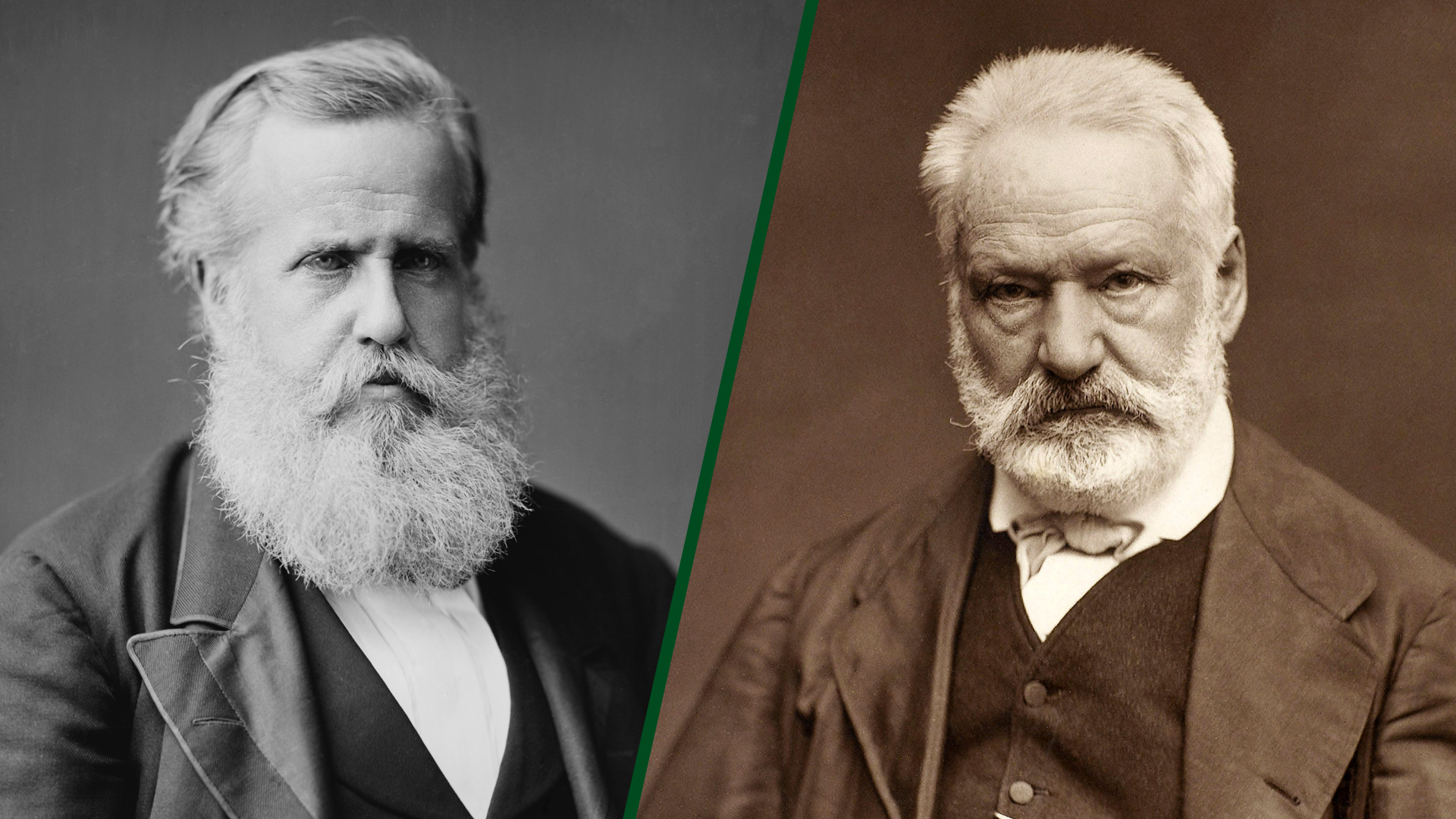Since his first trip to Europe, Emperor Dom Pedro II had wanted to meet the writer and staunch republican Victor Hugo, but the great writer’s isolation and the emperor’s previous travel schedule did not cooperate. On his new visit to Europe, with the famous writer once again established in Paris, Dom Pedro tried to meet with him, but it was not easy at all.

In one of the first attempts, via the Brazilian embassy, they tried to invite Victor Hugo to a meeting with the emperor, and the response received was brief: Writer Victor Hugo did not visit anyone. The issue at hand was not only that the fierce republican Victor Hugo liked to remain isolated, but also how the aristocratic circle around Dom Pedro II tried to prevent him from seeing Hugo. Victor Hugo was a republican with social leanings but not a socialist, and moreover, he was a spiritualist. The scandal of the meeting could not have been greater. The Orléans did not look kindly on the type of publicity this could generate in the French newspapers; and the Brazilians in the imperial entourage feared the repercussion of such a meeting in Brazil in public opinion.
Nevertheless, Dom Pedro insisted. Several attempts to meet the writer failed. Hugo suggested they meet at the French Parliament, where he, as a senator, would give a speech. But Dom Pedro II declined this proposal. He did not want to give such a political and public character to the meeting. Finally, knowing that the writer received visitors at his residence on Tuesdays and that he was an early riser, like the monarch, Dom Pedro went to Victor Hugo’s residence alone on May 22, 1877, knocking on the door at 9 o’clock.
With the following words, Victor Hugo recorded the emperor’s visit in his diary:
May 22 – 9 a.m. – Visit from the Emperor of Brazil. Long conversation.
“Very noble spirit. He saw The Art of Being a Grandfather on a table. I offered it to him and picked up a pen. He said to me: ‘What are you going to write?’ I replied: ‘Two names, yours and mine.’ He said to me: ‘Nothing more. That is what I was going to ask you.’ I wrote: ‘To Dom Pedro de Alcântara. Victor Hugo.’
He said to me: ‘And the date?’ And I added: May 22, 1877. He said to me: ‘I would like to have one of your drawings.’ I had a landscape of the Castle of Vianden that I had done. I gave him the drawing. He said: ‘What time do you dine?’ I replied: ‘At eight o’clock.’ He said: ‘I would come one of these days to dine with you.’ I replied: ‘Whenever you wish. You will always be welcome.’
He showered affection on Georges and Jeanne [Victor Hugo’s grandchildren]. When he entered, he said: ‘Give me a little trust. I am a bit shy.’ Speaking of kings and emperors, he said: ‘my colleagues.’ At another moment he said: ‘my rights… Then he resumed: ‘I no longer have rights. I have power due to chance. I must use it to do good. Progress and Freedom!’ When Jeanne returned, he said: ‘I have a wish. I would like to be introduced to Miss Jeanne.’ I said to Jeanne: ‘Jeanne, I present to you the Emperor of Brazil!’
Victor Hugo’s granddaughter, looking at this strange man dressed very plainly, found it very odd and said suspiciously: ‘He doesn’t have an emperor’s mantle.’ Dom Pedro laughed and replied: ‘Give me a little kiss, miss.’
“She offered her cheek. He said: ‘But, Jeanne, give me a hug around the neck.’ She embraced him with her tiny arms. He asked me for a photograph of the children and one of myself and promised me one of him. He left at eleven o’clock. He spoke to me in such a serious and intelligent manner that upon leaving, I said to him: ‘Sir, you are a great citizen.’ One more detail. When introducing Georges to him, I said: ‘Sir, I present my grandson to Your Majesty.’ He said to Georges: ‘My son, here there is only one majesty, and it is Victor Hugo.'”
After the meeting, the writer stopped by the hotel where the emperor was staying and left the promised photo at the reception. On the envelope, he wrote: “For the one who descends from Marcus Aurelius,” comparing Dom Pedro II to the Roman emperor, considered a wise philosopher. Hugo would not be the first nor the only one to connect the two emperors. During Dom Pedro’s youth, a book with the philosophical texts of Marcus Aurelius was published in Brazil, dedicated to the emperor and featuring a portrait of him as a young man.
Dom Pedro II visited the writer once more on the 29th, this time accompanied by his friend, the Baron of Bom Retiro. Besides Paris, Dom Pedro also visited various cities and regions in France, such as Brittany. In Orléans, he participated in the festival honoring Saint Joan of Arc. In Compiègne, he visited the Industrial and Agricultural Exhibition, and in Meaux, he toured a chocolate factory that used Brazilian cocoa.
Reference: REZZUTTI, Paulo. D Pedro II: A história não contada – O último imperador do Novo Mundo revelado por cartas e documentos inéditos. Brazil: Leya, 2019.

Matheus Araújo
Matheus Araújo is the founder and editor of Brazilian History. Born in Rio de Janeiro and holding a degree in Advertising and Marketing, his passion for history led him to enroll at the Federal University of the State of Rio de Janeiro, where he is currently pursuing a degree in History Education.
